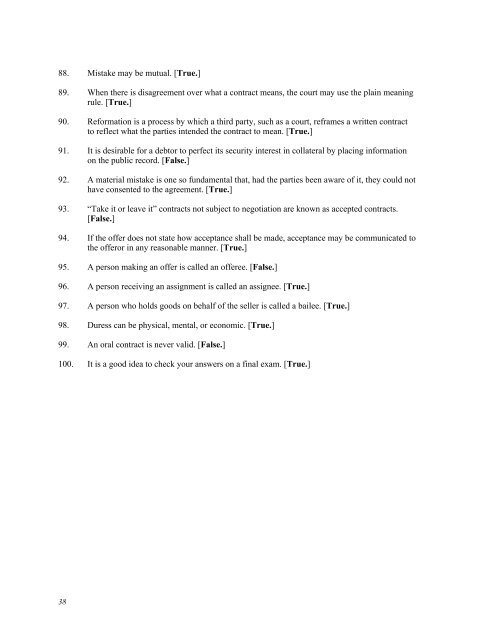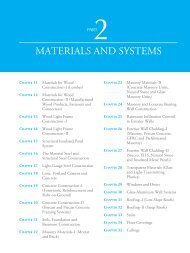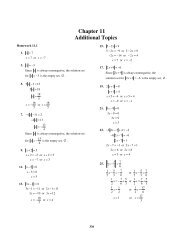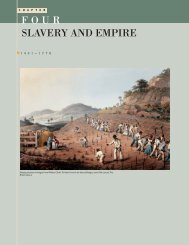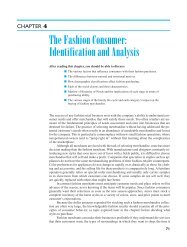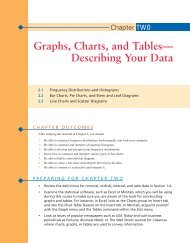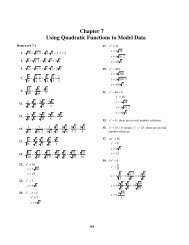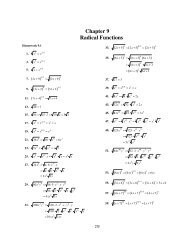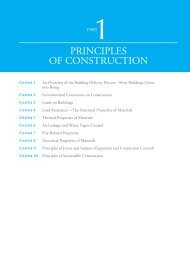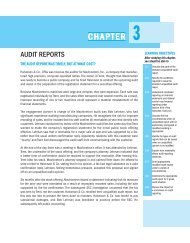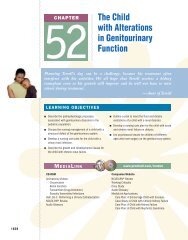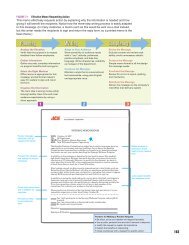Baldwin/Whiteside: Introduction to Contracts - Pearson
Baldwin/Whiteside: Introduction to Contracts - Pearson
Baldwin/Whiteside: Introduction to Contracts - Pearson
Create successful ePaper yourself
Turn your PDF publications into a flip-book with our unique Google optimized e-Paper software.
88. Mistake may be mutual. [True.]<br />
89. When there is disagreement over what a contract means, the court may use the plain meaning<br />
rule. [True.]<br />
90. Reformation is a process by which a third party, such as a court, reframes a written contract<br />
<strong>to</strong> reflect what the parties intended the contract <strong>to</strong> mean. [True.]<br />
91. It is desirable for a deb<strong>to</strong>r <strong>to</strong> perfect its security interest in collateral by placing information<br />
on the public record. [False.]<br />
92. A material mistake is one so fundamental that, had the parties been aware of it, they could not<br />
have consented <strong>to</strong> the agreement. [True.]<br />
93. “Take it or leave it” contracts not subject <strong>to</strong> negotiation are known as accepted contracts.<br />
[False.]<br />
94. If the offer does not state how acceptance shall be made, acceptance may be communicated <strong>to</strong><br />
the offeror in any reasonable manner. [True.]<br />
95. A person making an offer is called an offeree. [False.]<br />
96. A person receiving an assignment is called an assignee. [True.]<br />
97. A person who holds goods on behalf of the seller is called a bailee. [True.]<br />
98. Duress can be physical, mental, or economic. [True.]<br />
99. An oral contract is never valid. [False.]<br />
100. It is a good idea <strong>to</strong> check your answers on a final exam. [True.]<br />
38


